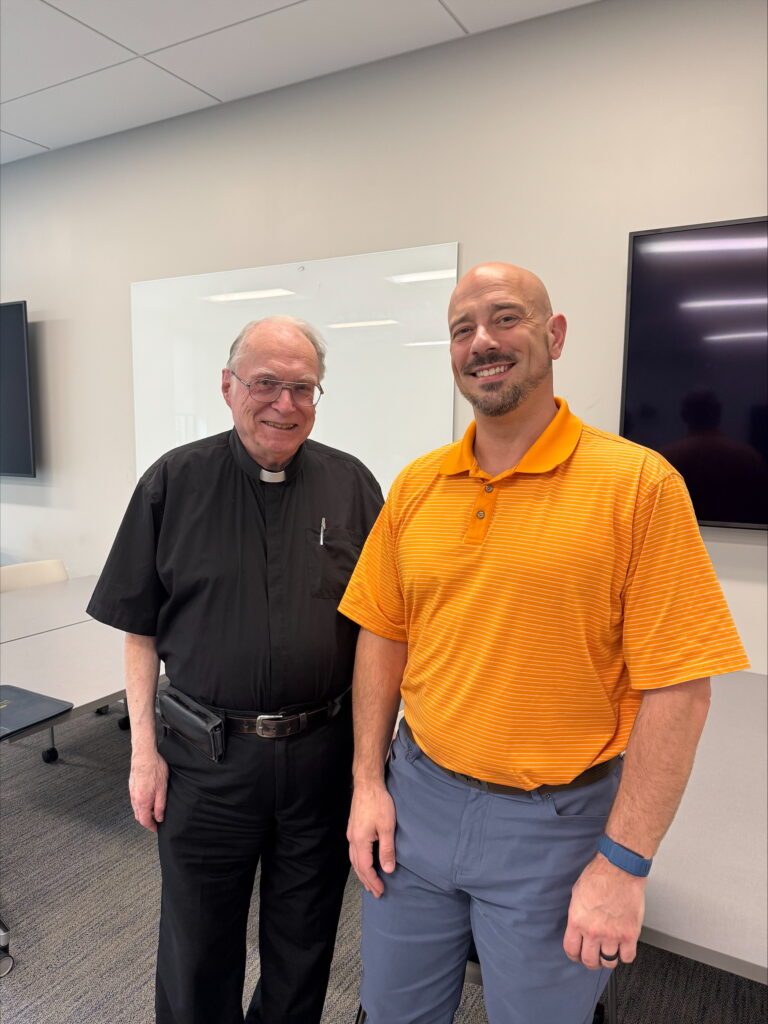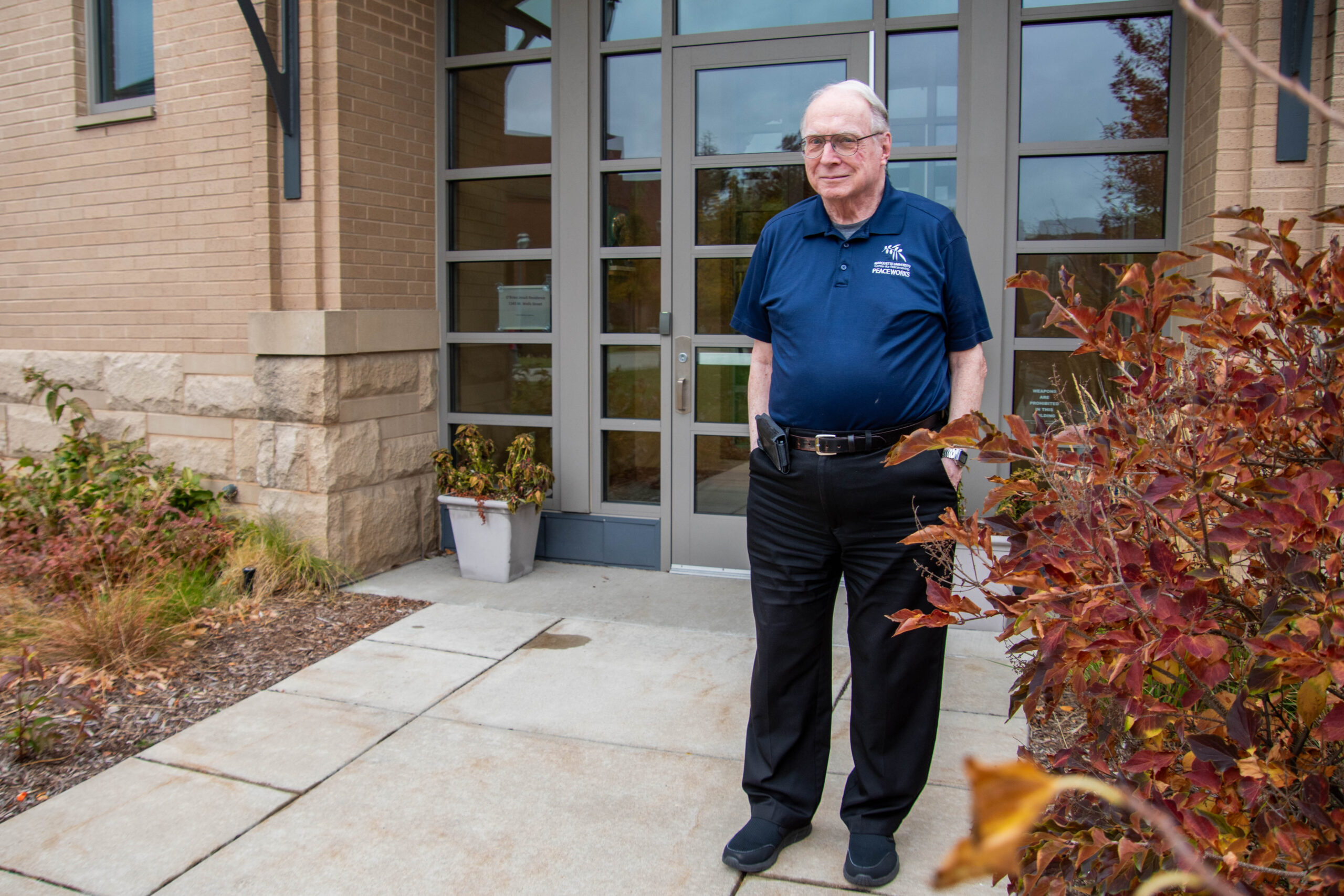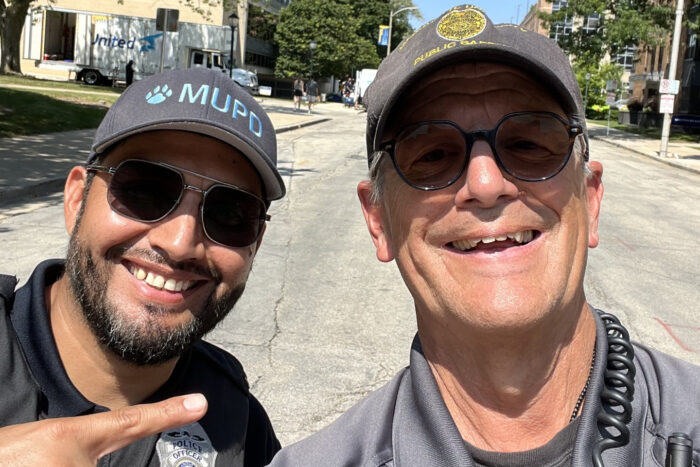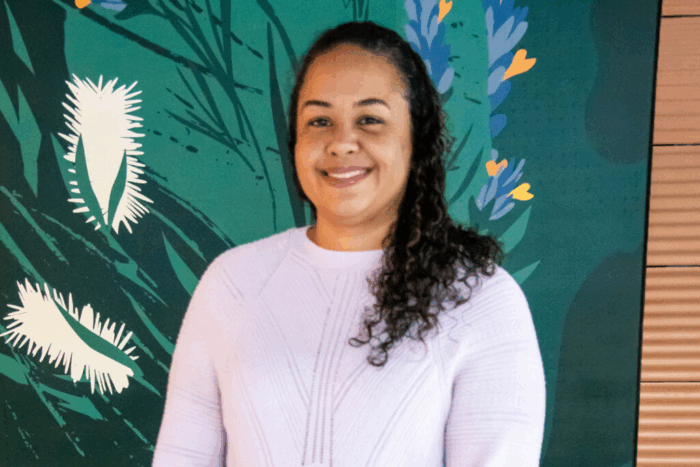Rev. Michael McNulty, S.J., is far from the typical guest speaker in a business school class. He comes from religious life, not the C-suite, and instead of talking about profits and losses, he speaks about whether profit above a certain level is even ethical.
“There’s a worldview which puts people at the center, and then there’s a worldview that puts numbers at the center. All I do is ask students which world they want to live in,” Father McNulty says.
Each year, Dr. George Cashman, the Robert B. Bell Sr. Chair in Real Estate, invites Father McNulty to his introductory real estate class for a discussion on housing justice. The talk is a chance for students to reflect on questions they don’t often hear: Is the real estate market fundamentally unjust? Should housing be a human right? How much money is too much?
These hard conversations are not meant to convert anyone to a particular way of thinking, according to Cashman. Instead, he hopes each student will educate themselves on the issues and arrive at their own conclusions.
“College is about helping people see the whole range of viewpoints, including ones they may have never considered before,” Cashman says. “That’s what Father McNulty is here for — he facilitates this dialogue so well.”
Ethics are integrated into the class in other ways, too. Students are assigned to read “Evicted: Poverty and Profit in the American City,” which follows eight Milwaukee families who are having trouble making rent payments. The book is a catalyst for ongoing conversation as well as the subject of students’ final papers.
The struggles detailed in “Evicted” are similar to the ones Father McNulty saw during his time in Washington, D.C., where he spent years doing advocacy work on behalf of impoverished people. When asked about his greatest insight from that time in his life, he answered immediately: “The best definition of poverty is simply people who don’t have enough money.”
“There are lots of people who are one paycheck away from living in their cars,” Father McNulty continues. “You know them. You may not be able to identify them, but that doesn’t mean they’re not there or that they’re not the same as you in a lot of other ways. And so my question is: do you care about them?”
“I want every student who graduates from Marquette to care about the lives of people they do not know.”
Rev. Michael McNulty, S.J.
Housing is a subject that carries heavy emotional weight for Paloma Muro, a junior from Milwaukee studying commercial real estate, finance and marketing. Muro’s family was forced out of their home during her childhood; she and her siblings stayed in multiple hotels, apartments and a family member’s house until they could find a new home. The Realtor who helped Muro’s parents move quickly on a new property played a large role in her decision to pursue real estate.
“That Realtor was an incredible resource for my family when we were struggling. I have an ethical responsibility to use my knowledge to be that resource for people,” Muro says. “I’ve always believed that housing is a fundamental human right; hearing that idea discussed was so important to me,”
Access to housing is also necessarily intertwined with other social issues. Both Cashman and Father McNulty teach students about redlining, the practice of not lending to a prospective home buyer based on race or ethnicity. The practice was especially prevalent in Milwaukee. Nearly every Black resident in the city during the 1930s had to rent homes instead of buying them because of redlining. The wealth disparity accumulated over time persists to this day, with historically redlined areas lagging far behind those that were considered lending-grade.

Cashman believes these are important conversations for students who may soon enter the real estate field. Many graduates of Marquette’s real estate program have prominent roles at development companies and lending institutions — they will have a large say in what gets built and who gets to occupy those buildings. They will hopefully do so while carrying the lessons learned in Cashman’s class with them.
“What I really want is for students to understand the context and the implications of their decisions,” Cashman says. “I don’t know how that will impact what they do, but I want them to feel the weight of their responsibility.”
“I’ve believed that housing is a human right for my whole life; hearing that idea discussed was so important to me,” Muro adds.
As for the students who will go on to careers outside of real estate, Father McNulty has a more fundamental request: care about other people.
“I want every student who graduates from Marquette to care about the lives of people they do not know,” Father McNulty says.



